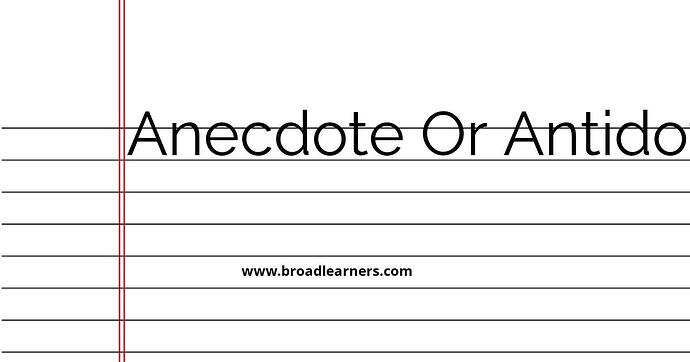'Anecdote' and 'antidote' are commonly confused words in English grammar. Understanding the difference between 'anecdote' and 'antidote' is important to use them correctly in written and spoken English.
'Anecdote' is a noun that refers to a short and amusing or interesting story about a real person or incident. It is often used to entertain or illustrate a point.
'Antidote' is a noun that refers to a substance that counteracts or neutralizes the effects of a poison or harmful substance. It is used in the context of medicine or as a metaphorical term to describe something that can alleviate or cure a negative situation or feeling.
Let's take a closer look at the meanings and usage of 'anecdote' and 'antidote'.
| 'Anecdote' | 'Antidote' |
|---|---|
| The word 'anecdote' refers to a short and amusing or interesting story about a real person or incident. | The word 'antidote' refers to a substance that counteracts or neutralizes the effects of a poison or harmful substance. |
|
|
To remember the difference between 'anecdote' and 'antidote', it can be helpful to think of 'anecdote' as a story that entertains, while 'antidote' is something that counteracts or cures.
Here are some examples of correct usage:
- She told a funny anecdote at the party.
- The antidote for snake venom is administered immediately.
- His jokes were an antidote to the tense atmosphere.
- I always enjoy listening to her anecdotes about her travels.
Remembering the correct usage of 'anecdote' and 'antidote' will improve your grammar and communication skills.
